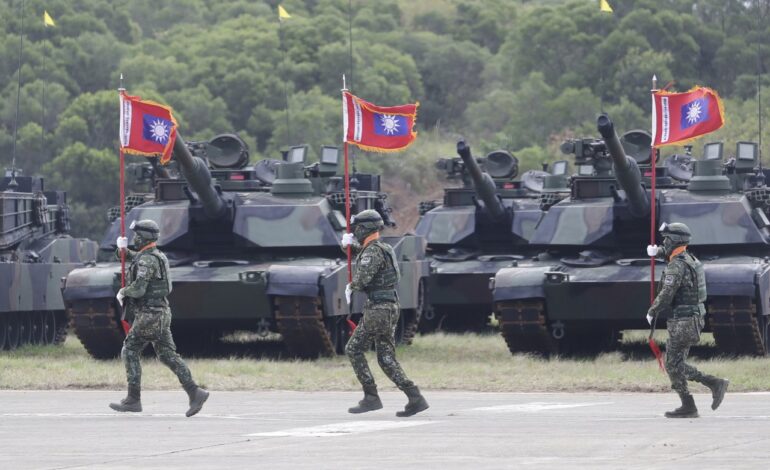Trump Confirms Arms Sales to Taiwan in Strategic Move

Former President Donald Trump has announced plans to proceed with arms sales to Taiwan, marking a significant move in U.S. foreign policy as tensions with China continue to escalate. The sale, which is valued at approximately $1.2 billion, aims to enhance Taiwan’s military capabilities amid growing concerns over regional security in the Pacific.
The announcement comes as part of Trump’s campaign strategy for the 2024 presidential election, positioning himself as a strong advocate for U.S. interests abroad. This arms deal represents the first major foreign policy initiative from Trump since he launched his campaign and signals his commitment to supporting Taiwan’s defense against potential Chinese aggression.
Details of the Arms Package
The arms package includes advanced missile systems and other military equipment intended to bolster Taiwan’s defensive posture. According to the U.S. Department of Defense, this sale is designed to provide Taiwan with the necessary tools to deter any threats from China, which has increased its military presence in the region.
In a statement, Trump emphasized the importance of maintaining stability in the Pacific. He noted that the deal would not only strengthen Taiwan’s defenses but also send a clear message to Beijing regarding U.S. support for its allies. “We are committed to ensuring that our friends have the means to defend themselves,” Trump said.
Supporters of the arms sales argue that they are essential for maintaining a balance of power in the Pacific. They highlight that Taiwan, which has been a self-governing entity since 1949, faces ongoing military threats from China, which claims the island as part of its territory.
Reactions and Implications
The announcement has drawn mixed reactions both domestically and internationally. Some lawmakers in the U.S. have praised the decision, viewing it as a necessary step to counter China’s growing influence. Others, however, warn that such actions may provoke further tensions between the U.S. and China, potentially leading to a military confrontation.
In response to the arms sales, Chinese officials have condemned the move, stating that it undermines peace and stability in the Taiwan Strait. They have warned of possible retaliatory measures, emphasizing that any military support for Taiwan would be viewed as a direct challenge to Chinese sovereignty.
The geopolitical ramifications of this arms deal are significant. As the U.S. seeks to solidify its alliances in the Indo-Pacific region, Taiwan’s partnership is increasingly seen as crucial. The arms sales reflect a broader strategy to deter Chinese expansionism and reassure U.S. allies of American commitment to regional security.
As the situation develops, it remains to be seen how this bold move will influence U.S.-China relations and the future of Taiwan’s defense. The upcoming months will likely be critical as both countries navigate the complexities of international diplomacy and military readiness.






